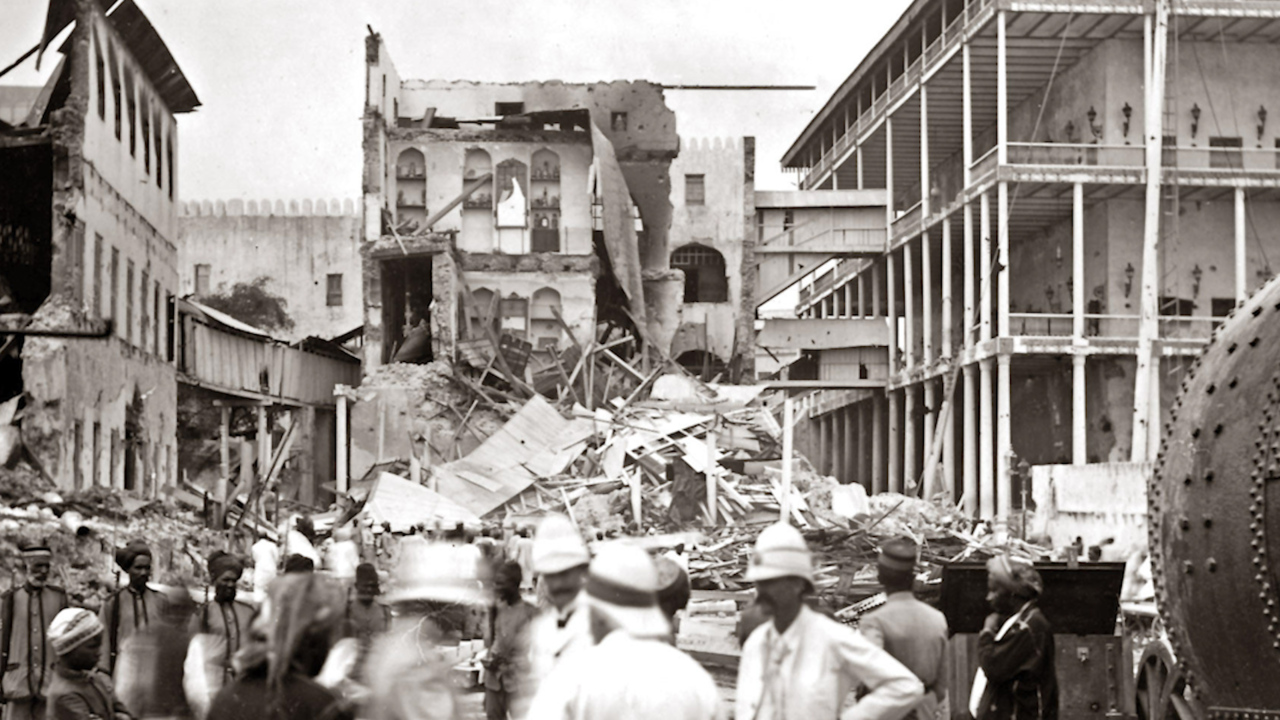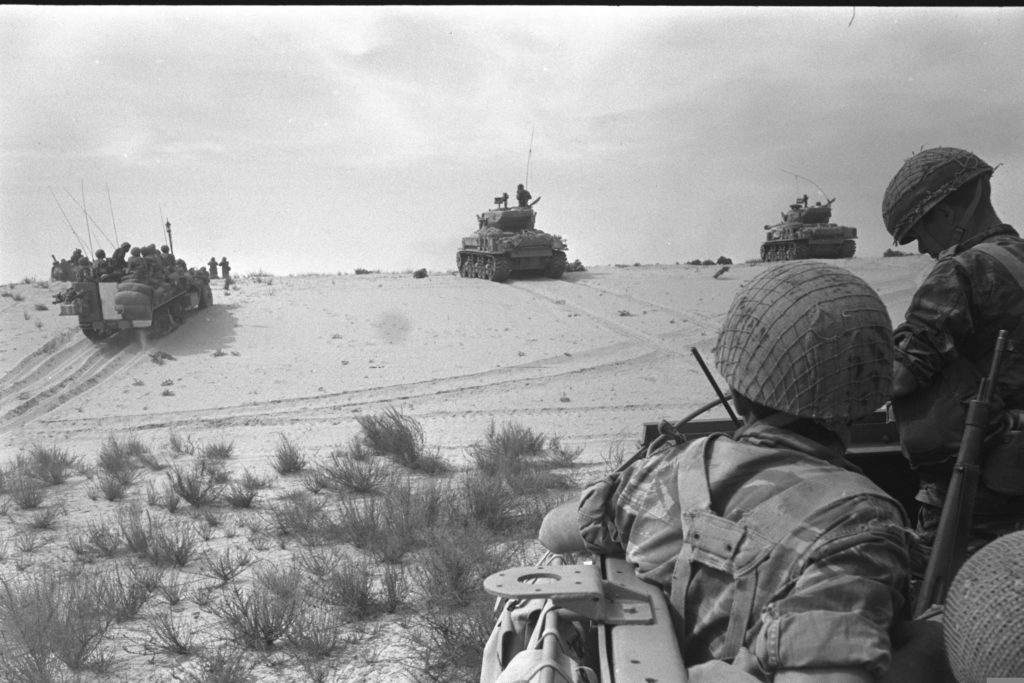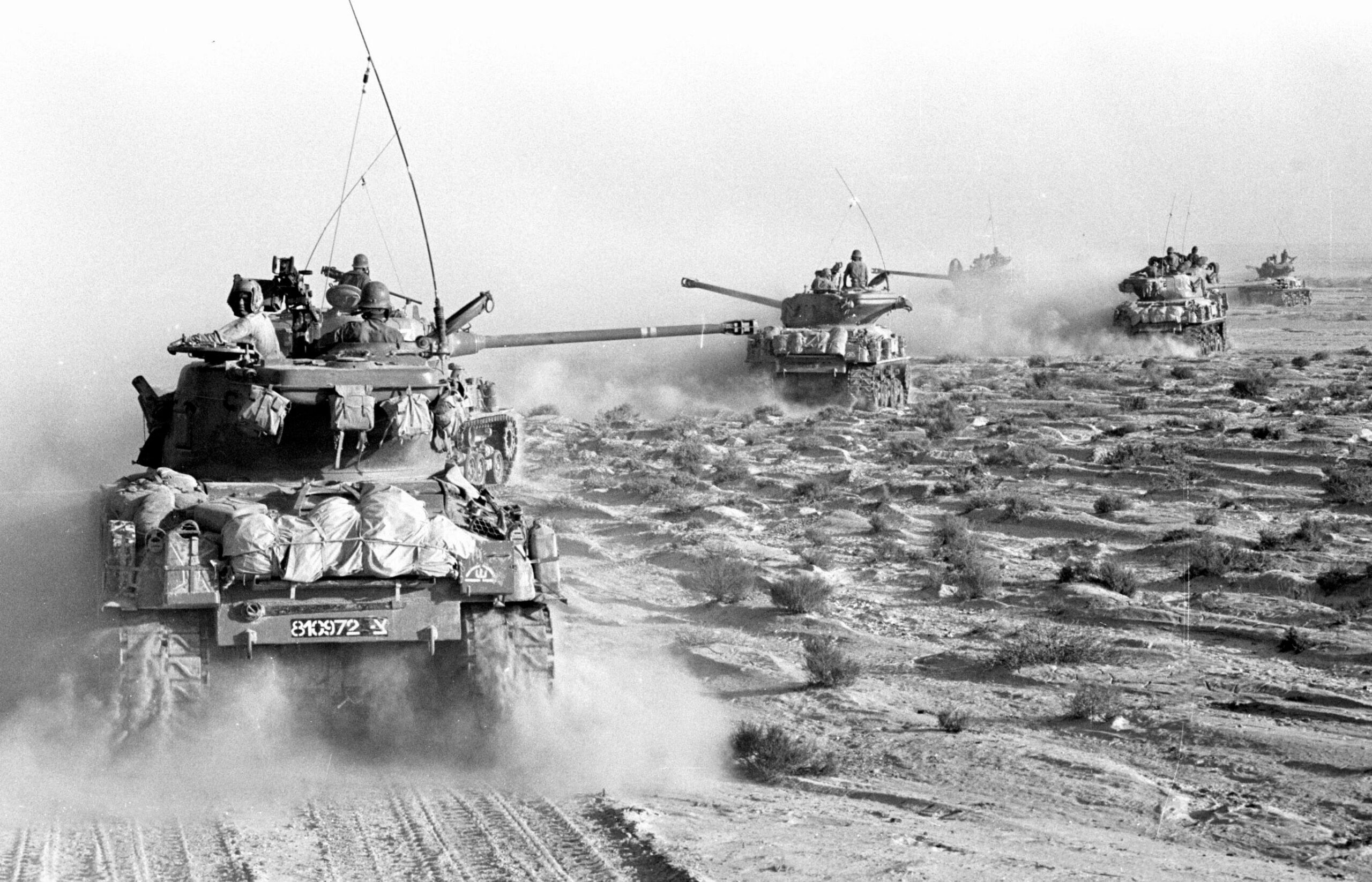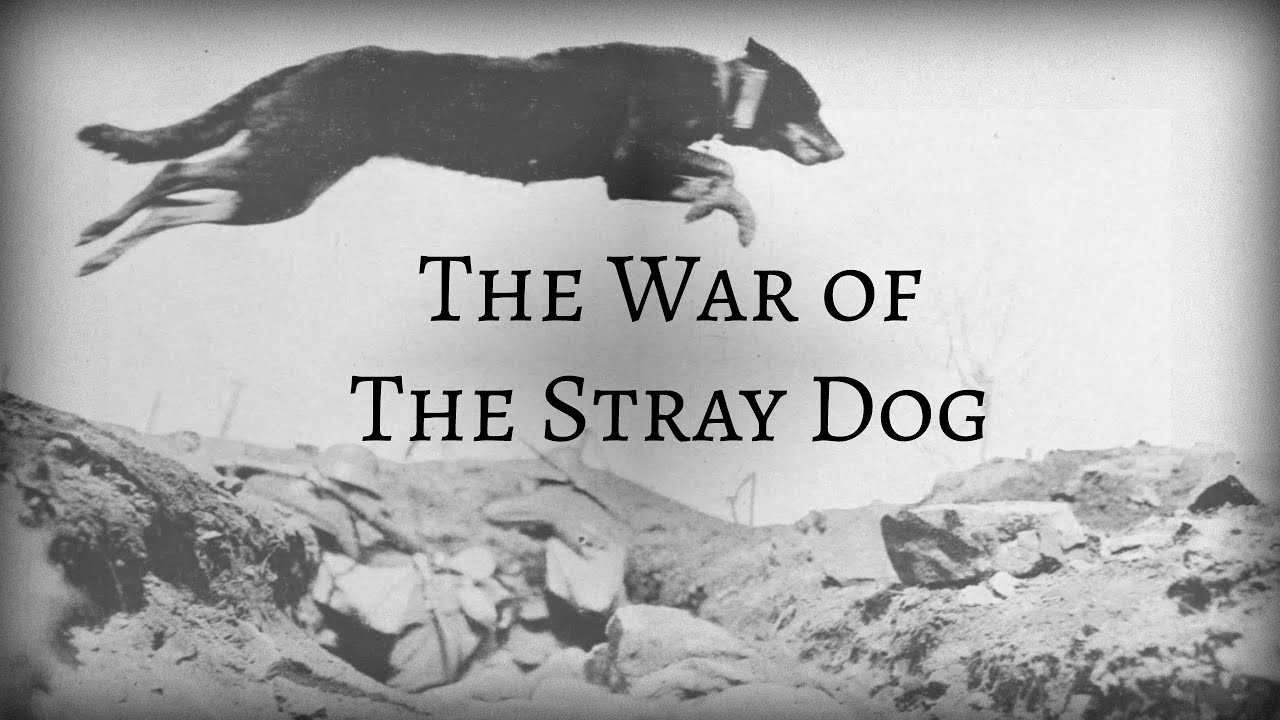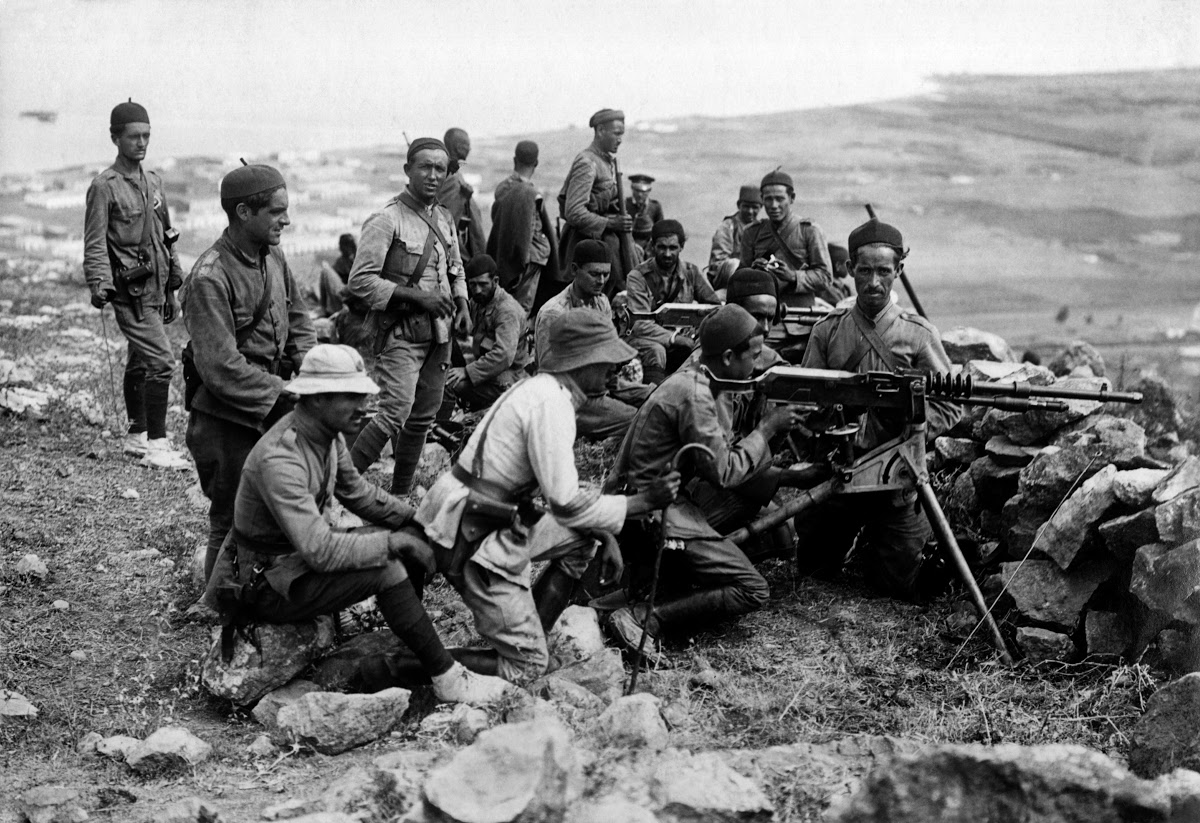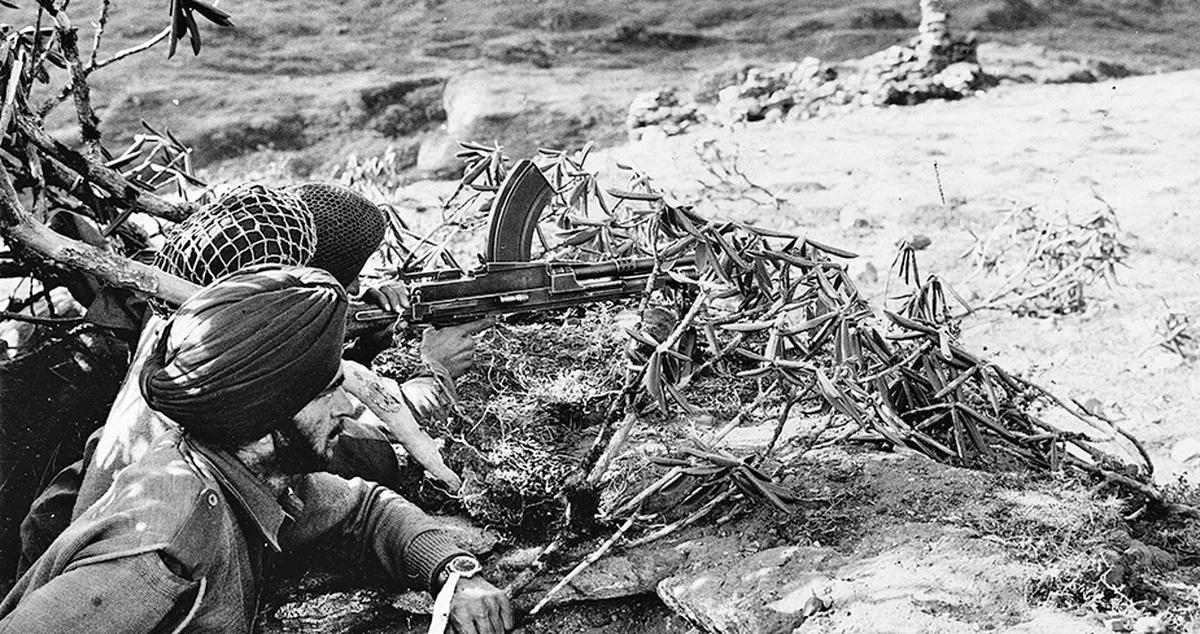Top Lists
Shortest Wars in History That Had A Devastating Human Cost
This article will take a look at some of the shortest wars in history that had a devastating human cost, which means the war did not take long before a settle of ceasefire was reached or a victor was declared but the devastating effects of those wars still leave a lingering shadow to many who still breathe.
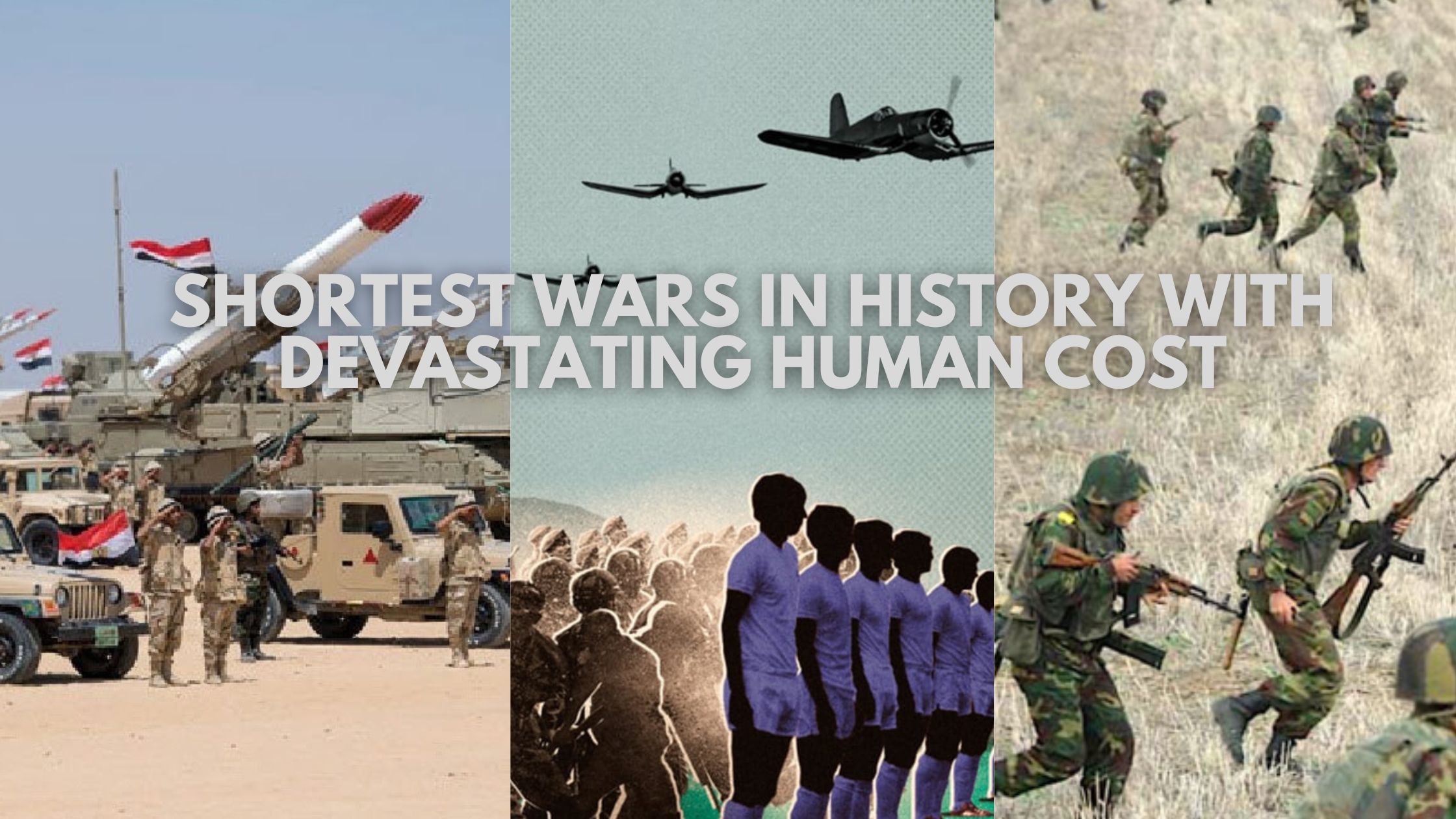
The reasons why nations engage each other in war vary, while some may be a show of strength, others may be to defend sovereignty and preserve their way of life. No matter what it may be, war is one the most destructive things that has ever happened to us as humans.
War, is a topic that isn’t new to many, as many countries are still feeling the effect of wars that have been long fought. Meanwhile, contrary to popular beliefs that wars may take years and decades before a victor finally emerg or settlements reach, there are however wars that were fought that took hours or just days to end.
So, in this article, we will be looking at some of the shortest wars in history that had a devastating human cost, which means the war did not take long before a settle of ceasefire was reached or a victor was declared but the devastating effects of those wars still leave a lingering shadow to many who still breathe.
Shortest Wars in History That Had A Devastating Human Cost
1. Anglo-Zanzibar war – 38 minutes
In 1896, Zanzibar, part of the British Empire, faced a crisis when Sultan Hamad bin Thuwaini, a British supporter, passed away. His nephew, Sultan Khalid bin Barghash, took power without British approval. When the British demanded him to step down, he refused and fortified the palace with troops and guns.
On August 27, 1896, the British navy bombarded the palace at 9:02 am after issuing ultimatums. The shelling lasted until 9:40 am, resulting in significant damage to the palace. Sultan Khalid managed to escape, but about 500 Zanzibar citizens were killed or wounded, with one British soldier injured. The short but intense conflict ended in victory for the British.
2. Libya-Egypt War – 3 days
In July 1977, a 3-day border war erupted between Libya and Egypt who are actually former allies in the Arab-Israeli conflict. The war was triggered when Egyptian President Sadat sought peace with Israel, seen as a betrayal by Libya’s leader, Muammar Gaddafi who had recently taken power in a coup in 1969.
Tensions, however, escalated as Libyan forces attacked Egyptian border posts, leading to retaliatory strikes by Egypt. The conflict resulted in a ceasefire after heavy casualties on both sides, with over 400 Libyans and 100 Egyptians killed or wounded. Despite its short duration, the war had a devastating human cost.
3. El Salvador-Honduras War – 4 days
In July 1969, a four-day war known as the Football War erupted between Honduras and El Salvador, although football was not the real cause. Tensions had been building due to issues between the two Central American states, including Salvadorans migrating to Honduras for better opportunities, which fueled animosity among the native Hondurans.
Meanwhile, the breaking point came during the 1970 World Cup qualifiers when violent clashes between spectators from both countries led to diplomatic ties being severed. Furthermore, on July 14, El Salvador’s air force attacked Honduras, leading to a swift invasion.
A ceasefire was however declared on July 18 after the conflict resulted in 900 Salvadoran and 2,100 Honduran deaths. The war revealed how a little spark can create tension that will last a generation. Also, because the war only took four days from the start to end it earn a place as one of the shortest wars in history that had a devastating human cost.
4. Armenia-Azerbaijan War – 4 days
This war is one of the shortest in history and the cause of this devastating war was not based on showing military strength, or conquering a neighboring country it was rather caused by the division over the disputed region and ethnic and territorial conflict.
In April 2016, tensions between Azerbaijan and Armenia escalated into a 4-day war over Nagorno-Karabakh, a disputed territory. Both sides engaged in heavy fighting using tanks, artillery, and air power. Despite significant casualties, neither side achieved a clear victory.
Eventually, on April 5th, 2016, an agreement for the cessation of hostilities was reached. The conflict left at least 80 soldiers and several civilians dead, with the actual toll possibly higher due to limited information.
Though the war ended, the relationship between the two sides remains tense. Meanwhile, after a cease-fire was reached in the four days war in 2016 war however broke out again in 202 over the disputed and unresolved tension between the two counties leading to the second Nagorno-Karabakh War which ended in Azerbaijani victory.
5. Russo-Georgian War – 5 days
On August 7th, 2008, the five-day Russo-Georgian War erupted when Georgia attacked the breakaway region of South Ossetia, which had sought autonomy as a sovereign state from Georgia with Russian support. The conflict resulted in devastating human costs, leaving over 100,000 civilians displaced and nearly 850 people dead.
Amid the war, Georgia aimed to join the EU and NATO, while South Ossetia strengthened its ties with Russia, escalating tensions. On August 7, 2008, Georgian forces invaded South Ossetia’s capital, but Russia intervened on August 8, pushing Georgian troops out and advancing towards Tbilisi, the Georgian capital.
The war ended on August 12, 2008, with a ceasefire, marking a clear victory for Russia and the provinces of South Ossetia and Abkhazia. The conflict however had severe consequences, leading to significant displacement and several loss of lives.
6. Six-day War – 6 days
The 6-Day War took place on June 5, 1967, between Israel and Arab states (Egypt, Iraq, Syria, and Jordan). Tensions escalated when Egypt blocked Israeli ships from the Straits of Tiran. Israel launched Operation Focus, devastating the Arab air forces.
They then advanced on the ground, gaining control of the Sinai Peninsula, Gaza Strip, East Jerusalem, and the West Bank. A ceasefire brokered by the UN ended the war on June 10, 1967.
The conflict resulted in significant geopolitical changes and created around 350,000 refugees. Approximately 20,000 Arabs and 800 Israelis lost their lives during the brief but intense war.
7. Second Arab-Israeli War – 9 days
In 1956, the Suez Crisis erupted when Israel, Britain, and France attacked Egypt. Tensions were high due to Palestinian attacks launched from Egyptian territory and Britain’s desire to retain control over the Suez Canal. Egypt’s decision to nationalize the canal further fueled the conflict.
On October 29, the war began with Israeli forces invading Gaza and the Sinai Peninsula, followed by British and French airstrikes on Egyptian air bases. By November 5, the Suez Canal area was under French and British control.
However, the USA intervened to prevent escalation, and a ceasefire was reached by November 7. Egypt was considered the winner as it regained control of the Suez Canal and removed British troops from its soil. The war, though brief, resulted in significant casualties for Egypt.
8. Bulgaria-Greece War – 10 days
The Incident at Petrich was a 10-day border war between Greece and Bulgaria that started on October 19, 1925. Tensions between the two nations date back to World War I, with Bulgaria punished for siding with Germany and losing Western Thrace to Greece. While a border clash is common between nations sharing borders together or nations with history, things however, escalated when a Greek soldier’s dog crossed into Bulgaria, leading to a full-scale war between the two nations.
After the war, Greece underwent a coup, and Lieutenant General Theodoros Pangalos came to power. He demanded an apology and compensation from Bulgaria for fallen Greek soldiers, but they refused. Pangalos then ordered his army to enter Bulgaria and occupy border towns and villages. Bulgaria sought help from the League of Nations, who ordered Greece to withdraw and stop hostilities.
The war ended on October 29, 1925, with fewer than 100 deaths on both sides. The fate of the stray dog that sparked the conflict remains a mystery as historical records provide no information about its fate.
9. First Franco-Moroccan War – 11 days
In 1844, the First Franco-Moroccan War erupted when France clashed with the Algerian resistance, led by Abd al-Qadir, who sought refuge in Morocco. France urged the Moroccan leader, Sultan Abd al-Rahman, to stop supporting Abd al-Qadir and secure the borders. A base was established in Lalla-Mania, where the French faced an attack by Alawi tribesmen but repelled them. Tensions rose, and a sense of jihad spread across Morocco.
The war intensified when the French navy bombarded Tangiers, leading to a decisive battle. Sīdī Mohammed, the king’s son, gathered a large Moroccan force but was defeated by the superior French army. By August 17, 1844, the French emerged victorious, and Morocco had to comply with their demands. Abd al-Qadir was outlawed, and a tighter border with Algeria was established. The conflict is one of the shortest wars in history that had a devastating human cost with 34 French and 870 Moroccan lives lost.
10. India-China war/Sino-Indian war – 32 days
In 1962, China and India, both new states, fought a 32-day border war over disputed Himalayan territory. Tensions rose due to conflicting claims on Aksai Chin and Arunachal Pradesh. China’s annexation of Tibet and India’s sheltering of Tibetan leaders further fueled the conflict.
The border clash however escalated when India discovered a Chinese road in Aksai Chin connecting to Tibet and other provinces. China launched an attack, driving out the Indian army. In response, India counterattacked at the border. The war took place in harsh mountain terrain at 14,000 feet, resulting in significant casualties.
The war ended on November 21, 1962, after the USA threatened to support India. A ceasefire was called, and both sides returned to their original positions. China emerged victorious, showcasing its military strength and numerical advantage due to nit large population. The conflict claimed 1,383 Indian and 722 Chinese military lives.
Shortest Wars in History That Had A Devastating Human Cost
- Anglo-Zanzibar War – 38 minutes
- Libya-Egypt War – 3 days
- El Salvador-Honduras War – 4 days
- Armenia-Azerbaijan War – 4 days
- Russo-Georgian War – 5 days
- Six-day war – 6 days
- Second Arab-Israeli War – 9 days
- Bulgaria-Greece War – 10 days
- First Franco-Moroccan War – 11 days
- India-China War/Sino-Indian War – 32 days

